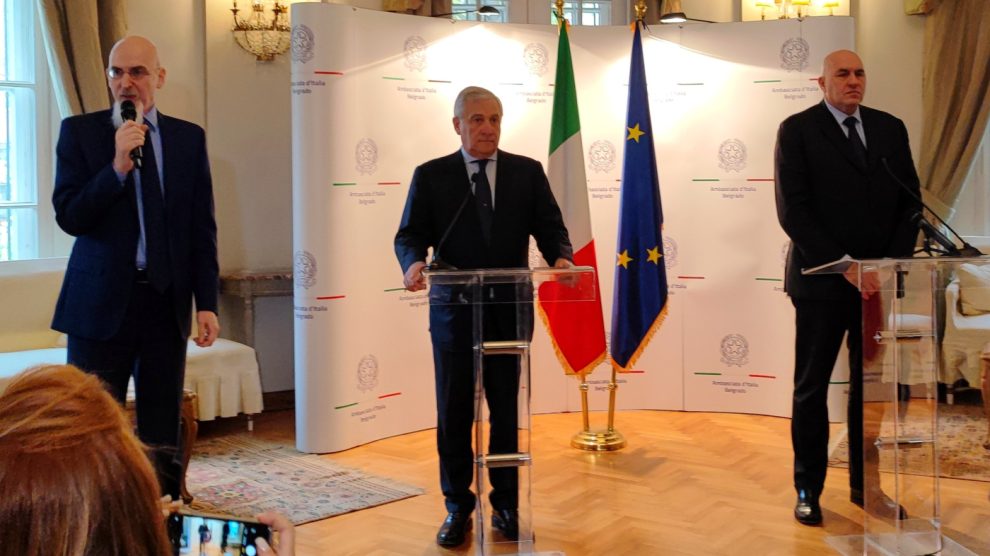Crosetto and Tajani travel to the Balkans. Italy’s Defence and Foreign Ministers made their way to Serbia and Kosovo on Tuesday, to engage in high-level talks to foster dialogue amid escalating tensions and the potential for a violent outbreak.
- “Our visit today underscores the new government’s desire to be strongly present in the Balkans, while making an active contribution to stabilising this area of Europe as well as North Africa and the Mediterranean in general,” said Defence Minister Crosetto in Belgrade.
- He recalled how the peacekeeping operation brought forward by Italy’s Carabinieri over the last two decades is “appreciated by both Serbs and Kosovars, and we want to disseminate and strengthen this model of dialogue and respect for commitments.”
- “Italy’s commitment to the stability of the Balkans is not accidental and is not extemporaneous,” remarked Foreign Minister Tajani voicing Rome’s willingness to engage along the “many avenues for cooperation.”
In case you missed it: Belgrade and Pristina are embroiled in a row over licence plates, based on ethnic tensions; protests erupted over the summer. The EU’s mediation failed, with foreign affairs chief Josep Borrell criticising the two countries’ leaders for refusing to defuse the situation.
- NATO Secretary-General Jens Stoltenberg later voiced the Alliance’s disappointment and demanded “responsibility” and “pragmatic solutions” from the two leaders. He also stressed that NATO’s local mission remains “vigilant.”
- On Tuesday, PM Kurti accepted the United States request to delay the fines (meant to enforce the Kosovar number plates across the country) by an additional 48 hours.
The Italian connection. Rome is uniquely placed in this tussle due to its significant contribution to peacekeeping operations in the area, especially NATO’s Operation Kosovo Force (KFOR). Italian forces have been on the ground since the operation’s start in 1999 and have been instrumental in its functioning.
- Ministers Tajani and Crosetto visited the mission’s centre, which is under the command of Italian general Michele Ristuccia. The 750-strong Italian contingent, deployed in different parts of Kosovo, is the largest in the international mission, noted the Italian MFA (more here on Italy’s engagement).
The expert’s take. “The ‘Balkan powder keg,’ […] continues to be an area of latent instability that, unfortunately, is now dangerously close to the war situation in Ukraine following the Russian invasion,” wrote Giovanni Castellaneta, Italy’s former Ambassador to the US, on our sister site.
- The bilateral “political consultation” agreement signed by Belgrade and Moscow in September confirms Russia’s interest in the region is unchanged, and Serbia – an EU member hopeful – is looking East more than it’s looking West.
- The solution, he argued, is for the EU to speed up the Balkan countries’ accession so as not to “throw the region back into instability or push it into the arms of competing and antagonistic countries.” And Italy, due to its historical ties, “can play a fundamental role.”
The NATO angle. The Russian war in Ukraine strengthened Kosovo and Bosnia-Herzegovina’s resolve to join the Atlantic Alliance, noted Matteo Bressan, Professor of International Relations at LUMSA and SIOI, speaking to Decode39. And Russia opposed that just last year.
Image: Serbian Monitor




